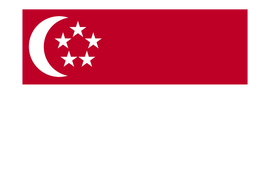
U.S. Department of Commerce Starts Reviews on Antidumping and Countervailing Duties
Estimated reading time: 5–8 minutes
What Happened
On June 25, 2025, the U.S. Department of Commerce (Commerce) began official reviews of many antidumping duty (AD) and countervailing duty (CVD) orders. These reviews check if companies around the world are selling goods in the U.S. at unfair prices or getting unfair help from their governments.
How the Reviews Work
Commerce gets requests to review different products every year. For this round, the reviews cover products with May anniversary dates. These reviews use special rules and deadlines. Companies are chosen for detailed checks using trade data from U.S. Customs or from questionnaires about their sales.
Commerce can group related companies together if they operated as one in earlier reviews. If a company should be grouped with others, they must list those companies and share past review details.
Companies Must Respond Quickly
If a company did not send products to the U.S. during the review time, they must tell Commerce within 30 days. If a company wants to stop its review request, it must do so within 90 days.
If companies believe the market is not acting fairly (called a Particular Market Situation), they must send this information no later than 20 days after handing in some required paperwork.
Special Rules for Non-Market Economy Countries
For countries where the government controls businesses, like China, Commerce gives one AD rate to all companies. However, companies can apply to get their own rate if they prove they are not controlled by their government. To do this, they must fill out special forms. These forms are due within 14 days after this notice was published.
List of Products and Countries Reviewed
Commerce started reviews for many products and countries. Some of these include:
- Steel products from Belgium, France, Germany, Italy, Korea, Taiwan, Türkiye, and the U.S.
- Mattresses from Indonesia and Malaysia.
- Soybean meal from India.
- Stainless steel from Belgium and Taiwan.
- Aluminum extrusions from China.
- Mushrooms from the Netherlands and Poland.
- Cylinders from China.
- Large diameter welded pipe from Canada, Greece, Korea, and Türkiye.
- Optical brightening agents from Taiwan and China.
- Vertical shaft engines from China.
- Certain steel nails from United Arab Emirates.
Commerce also started CVD reviews for some of these products and countries.
Rules for Certification and Deadlines
Some companies can apply to get a special certification to ship both reviewed and non-reviewed products. The Certification Eligibility Application form is also due within 30 days.
No Requests for Suspension Agreements
There were no new requests for suspension agreements in this review round.
Duty Absorption and Gap Period
Commerce may also check if companies are absorbing (not passing on) the duties. For the first reviews of new orders, no duties are charged for goods imported in a temporary “gap” between two important dates.
Steps for Legal Protection and Data Submission
Interested parties must apply for access to protected information and follow Commerce’s detailed rules about submitting information and letters. There are five types of factual information, each with strict time limits and special ways to submit them.
If a company does not certify its information correctly, its information may be rejected. Extensions for deadlines must be requested before the deadline, and follow very specific rules.
Where to Find More Information
All deadlines, forms, and rules are available on the Commerce website or from the contact listed in the notice.
This notice and the reviews are issued as required by law under section 751(a) of the Act.
Who Signed the Notice
The notice was signed on June 18, 2025, by Abdelali Elouaradia, Deputy Assistant Secretary for Enforcement and Compliance.
Legal Disclaimer
This article includes content collected from the Federal Register (federalregister.gov). The content is not an official government publication. This article is for informational purposes only and does not constitute legal advice. For case-specific consultation, please contact us. Read our full Legal Disclaimer, which also includes information on translation accuracy.








